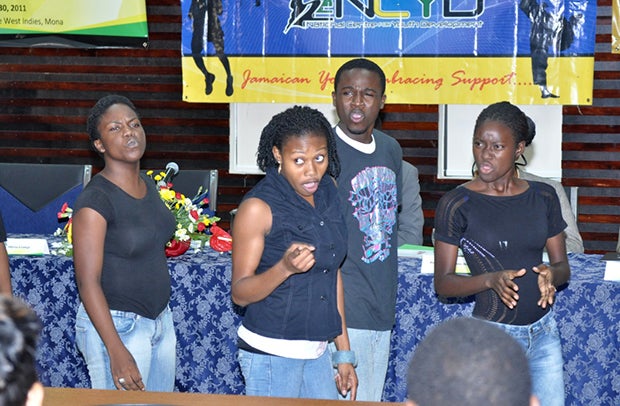In Latin America and the Caribbean, about one in every five youth between the ages of 15-24 is neither in school nor in the workforce. This amounts to roughly 25 million young people whose situation is affecting not only their present and future earnings, motivation and self-esteem, but also their society’s economic outlook and well-being!
Are these “unattached” youth a “lost generation” as some are claiming? I refuse to think so. I believe that it is within our governments’ and our own power and responsibility to provide young people with the skills and opportunities to lead productive lives. While evidence shows that there are admittedly many challenges for helping youth in an effective manner, it also shows that programs that are strong in developing work and life skills through internships and training, that give importance to self-development and self-esteem, and that have a good mentoring component are best positioned to do so.
Jamaica’s youth development programs for “unattached” youth are an interesting case to learn from, both because they offer different modalities of attention and because they have been rigorously evaluated. For the past decade or so, the National Youth Service (NYS) in Jamaica, with support from the Inter-American Development Bank (IDB), has been giving young “unattached” people a second chance at success through different programs: The CORPs residential program (phased out), the CORPs non-residential program, and the Career Advancement Program (CAP). The CORPs programs provide youth with training in limited sector skills as well as personal and general workplace skills such as communication, conflict management, and employability skills, complemented by internship opportunities under a workplace supervisor. The CAP program provides youth with two extra years of schooling with academic and skills training for the job market.
The programs’ evaluation, which was carried out by a team from the Universities of North Texas and the West Indies (Hull et al, 2014) with support from the IDB, yield some interesting findings and lessons:
- Programs can be effective in developing needed job-related skills: Participants in all modalities gained in academic performance, self-efficacy, and workplace skills relative to non-participants. Gains were noted in problem-solving, self-appraisal and ability to gather occupational information.
- Program effects decline after time if no further opportunities or follow-up are provided: In nearly all outcome measures, effects from the programs decline after participation. This suggests that in order to maintain the basic abilities required for employment success and continuing education, youth need opportunities for skill maintenance as well as encouragement and assistance to seek them out (i.e. with a mentor).
- Raising full time employment rates for youth is not an automatic result of training: Similar levels of full-time employment in the treatment and control groups, post-program, suggest a need for increased support and follow-up in the transition to employment.
- Socio-emotional development requires strategies different to training: There was no impact on the risk and resiliency scales and very low effects on socio-emotional development. Clearly, this is an area that needs more development.
If you know of programs aimed at helping “unattached” youth transition into the workforce or have good ideas, share them with us and join our discussion on how to build programs that effectively serve them.


Leave a Reply